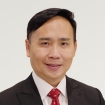Assets under management in Singapore’s fund management industry grew by 16% year-on-year to reach $5.4 trillion in 2021. As at 31 December 2021, there were 1,108 registered and licenced fund management companies (up from 787 in 2018), as well as more than 700 single family offices operating in Singapore. Approximately 28% of the 660 Variable Capital Companies established in Singapore as at 14 October 2022 are managed by external asset managers or multi-family offices in Singapore.
The asset and wealth management (AWM) sector continues to be one of the key pillars of growth for Singapore. This is evident in the Financial Services Industry Transformation Map (ITM) 2025 launched on 15 September 2022, which lays out the growth strategies to deepen capabilities in AWM.

Based on the UBS Billionaire Survey 20221, billionaires are using multiple means to drive change. Just over a third are doing so through investing and almost four in ten are taking action through philanthropy. 85% of family offices in Asia Pacific make philanthropic donations, with average donation per family of US$1.8 million over a 12 months’ period.2 As part of the ITM 2025 strategy, Singapore targets becoming Asia’s centre for philanthropy.
While as a policy, Singapore incentivises donors making donations to approved Institutions of a Public Character and other eligible institutions only where the causes benefit the local community, as it recognises that family offices come to Singapore to access investment and philanthropic opportunities in the broader Asian region.3
In Budget 2023, the Finance Minister has proposed a new tax incentive scheme for qualifying donors with family offices operating in Singapore. Qualifying donors can claim 100% tax deduction for overseas donations made through qualifying local intermediaries, capped at 40% of the donor’s statutory income. To qualify, donors must have an incentivised fund vehicle under the section 13O or section 13U schemes and meet the eligibility conditions such as incremental business spending of $200,000. Further details will be provided by 30 June 2023.
We look forward to the details clarifying, in particular, the definition of “qualifying donors” for the above tax incentive. In order to make this new tax incentive meaningful, it is important to define “donors” widely. If “donors” are limited to individuals who are the ultimate beneficial owners, the above scheme will only benefit individuals who are paying income tax in Singapore at the individual level (such as on their employment income). Overseas family members would likely have no statutory income chargeable to tax in Singapore and hence the proposed tax deduction may not be useful. Whilst there could be many ways to address this, one suggestion would be to define “donor” to include both the ultimate beneficial owners and companies directly or indirectly owned by such owners in Singapore, thereby making the family office owned by them, i.e. the fund management company managing the section 13O and section 13U vehicles, a qualifying donor. Such family offices are taxable at 17% on the fee income they derive from managing the section 13O and section 13U vehicles. Such an approach will simplify the scope and operation of the new tax incentive scheme by providing a direct link to the incentivised fund vehicle and at the same time providing a meaningful tax saving for the family office in question.
1 The Billionaire Ambitions Report 2022 published by UBS
2 The Asia-Pacific Family Office Report 2022, published by Campden Wealth
3 Reply to Parliamentary Question on working with family offices to deepen investment in local companies per Parliament Sitting on 5 October 2022, which is retrieved from https://www.mas.gov.sg/news/parliamentary-replies/2022/reply-to-parliamentary-question-on-working-with-family-offices-to-deepen-investments-in-local-companies
Contact us








